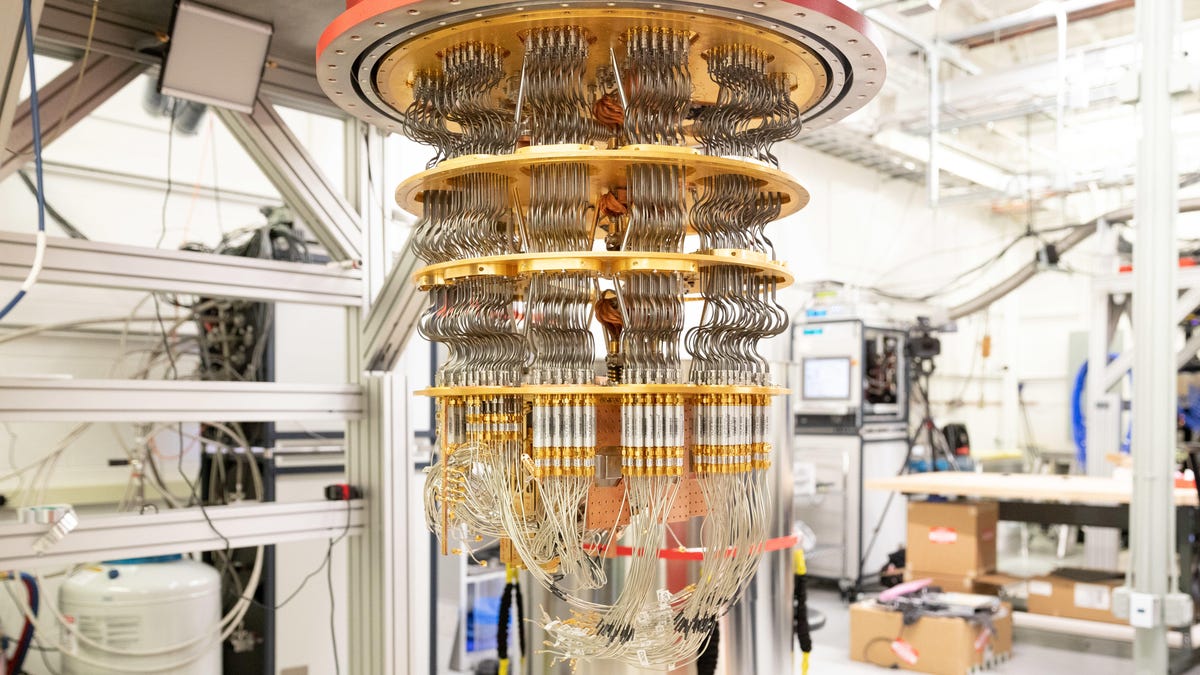Quantum Computing: A Simple and Fun Guide
Posted: Sat Dec 16, 2023 6:23 pm
Imagine a new kind of computer that can solve problems our current computers find impossible! This is the promise of quantum computing. It’s a cutting-edge field that uses the strange rules of quantum physics to process information in ways that regular computers can’t.
In a regular computer, the basic unit of information is a bit, which can be either 0 or 1. But in a quantum computer, we have quantum bits or “qubits”. Here’s the cool part: a qubit can be both 0 and 1 at the same time!Think of it like flipping a coin. While it’s in the air, you can’t tell if it’s going to be heads or tails - it’s like it’s both at the same time. That’s what a qubit is like. But when you catch the coin (or measure a qubit), it has to pick - heads or tails, 0 or 1.What are Qubits?
Quantum computing also uses a weird thing called “entanglement”. This is when two qubits become linked, so that the state of one instantly affects the other, no matter how far apart they are.Imagine you had two entangled dice. You roll them, and no matter what, they always show the same number. If one shows a 6, the other will too, even if it’s on the other side of the room!Entanglement: A Quantum Tango
Just like regular computers, quantum computers use algorithms and logic gates to process information. But quantum gates are even more powerful because they can create and control the special states of qubits.For example, a quantum NOT gate can flip a qubit from 0 to 1 or vice versa, and it can also make a qubit be both 0 and 1 at the same time. A quantum CNOT gate can flip one qubit depending on the state of another, and it can even entangle two qubits.Quantum Algorithms and Logic Gates
Google’s Quantum Computer

Quantum computing could revolutionize fields like cryptography, optimization, machine learning, and artificial intelligence. But it’s not easy. Quantum computers are very sensitive to disturbances, which can mess up the states of the qubits and cause errors. They also need lots of qubits to do complex tasks, and it’s hard to make and control that many. Plus, they need to correct any errors that happen during computation, which can be slow and costly.The Power and Challenges of Quantum Computing
Conclusion
Quantum computing is an exciting and rapidly evolving field. It has the potential to transform many areas of science, technology, and society. But as we push the boundaries of what’s possible, we also need to think about the ethical and societal implications of this powerful new technology. Quantum computing doesn’t just offer new ways to compute - it challenges us to rethink what computation and information really mean. And who knows, maybe one day we’ll all have a quantum computer in our pockets! But until then, we’ll just have to make do with our regular, old-fashioned computers. They may not be quantum, but at least they don’t entangle our bank accounts!